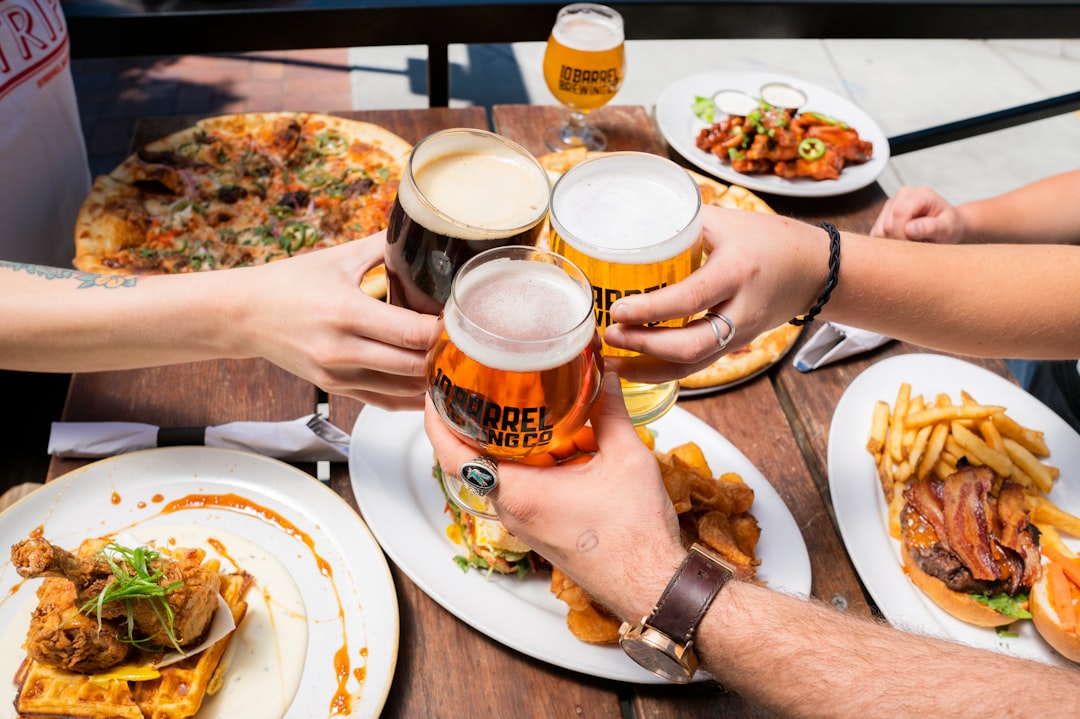Experience an experience
Tock's newest feature invites restaurants to rethink what they're already offering to cash in on our love of doing special things.

A new feature from Tock is honing in on the company’s core competency: bookable experiences.
The reservations service that got its start as a ticketing platform for restaurants this week added “multi-experience tables” for its restaurant customers. A restaurant can use Tock to offer any number of special experiences, like wine tastings and seasonal tasting menus, while keeping the same tables open for other types of bookings.
Matt Tucker, head of Tock, told me that restaurants sometimes hesitate to offer official experiences on Tock lest they take a table from a prospective guest hoping to book a standard reservation.
The new feature, which feels more like a technical tweak with huge marketing potential, is a nod to how diners think about meals at full-service restaurants. The National Restaurant Association billed “experiences” as its top trend last year. In a survey, the organization found that 67 percent of consumers would rather spend money on an experience, like a restaurant meal, compared to purchasing something from a store.
“Foodservice and hospitality have unfortunately become commodities,” Scott Erickson, a former restaurant tech chief marketing officer who now runs his own consultancy, said, adding that tight margins, high food costs, and perpetual labor shortages haven’t done much for elevating consumer experiences lately. At the same time, pandemic-era restaurant operations (like takeout and delivery) created an expectant consumer that wants food fast and conveniently.
“When the industry is all racing to meet those demands, things become homogenized and customers get bored,” he said. “So what do they seek? A better and different experience.”
Tock is clearly leaning in. Its website instructs restaurants to rethink how their offering might translate to something special. Think: a standard dinner can become “a culinary journey with the chef.” A quiet table for two set with a candle turns into a three-course “night of romance.” Suddenly, a night out at a restaurant feels like something more than a night out at a restaurant.
I asked Tock’s Tucker for his favorite experiences on the platform, and he gave me a good one:
“Mezzanotte, a Northern Italian restaurant in Seattle, serves house-made pasta, seasonal antipasti, and a thoughtfully curated Piedmontese focused wine list. The ‘NonnaKase’ is a bar-top specific experience that consists of eight to 10 courses featuring ingredients ‘your Nonna is excited about that evening.’ This kind of tugs at the heartstrings and reminds me of how my grandmother prepared meals.”
NonnaKase!
There are echoes of this idea elsewhere. Just this week, Applebees sold out of its $200 “date night pass,” which gave purchasers $30 per week toward food at the restaurant. Yes, it’s a great deal for people who love Applebees… but it’s an even better marketing opportunity.
The success of any reservations initiative is judged by a sort-of crude metric: Butts in seats.
Every new feature or product change points toward helping restaurants find more diners and get them in the door. Special events and experiences have long been touted as a way to increase that v. v. scientific “butts in seats” metric, piquing interest in showing up during so-called “shoulder times” or less desirable days of the week.
Tock says bookable experiences on its platform have so far generated over $2.25 billion in revenue for restaurants. Restaurants that already rely on the feature talk about offering experiences that have become integral to their brand, but also the ability to test new ideas to see what sticks.
With this tech change, a restaurant on Tock can offer any number of experiences without needing to sell out —or sell any. Experiences become experiments, potentially heralding a new exciting and creative era.
Or, more simply as Erickson predicts, “The restaurants that can meet the base needs of the customer while running a profitable business and delivering something unique will get attention.”
What else?
Speaking of reservations, Resy is reportedly shutting down its U.K. operations this year. — Restaurant UK
We are all chasing growth and scale, but at what cost? Here’s the case for thinking differently: In 2024, stop expanding — BOSS BARISTA
More on the “Keith Lee effect” — after Lee ditched the Bay Area earlier this month citing safety and food quality concerns, Bon Appetit talked to independent restaurants about how a review from the TikTok superstar seriously changed their business’ trajectory.1
Stanford researchers built an “inexpensive” ($32,000) robot that can cook shrimp — and likely a lot more — by learning from AI. — MIT Technology Review
If weaponizing tips is a bad look, this might be worse. In response a new delivery minimum wage in New York City, gig workers for third party delivery services say the companies are working against them, making it harder to schedule shifts and, yes, get tips — Fast Company
Here’s more analysis of the Uber/Drizly situation. Drizly will stick around until the end of March or so, and as noted here, has a number of promotions lined up before it closes. — VinePair
Drones on the brain: the Wall Street Journal on how artificial intelligence will reshape the way we get stuff delivered — WSJ
Taco Bell launched limited-edition cinnamon cereal that’s co-branded with Uber Eats. Also, it’s only available in five cities. Why not? — USA Today
ed. note: I’m not linking to this piece in solidarity with the Condé Nast union walk-off on Tuesday, January 23. I’ll add it in later. This is a reminder that the state of the media business is… not great, and it’s more important than ever to support quality journalism and the people who produce it.



